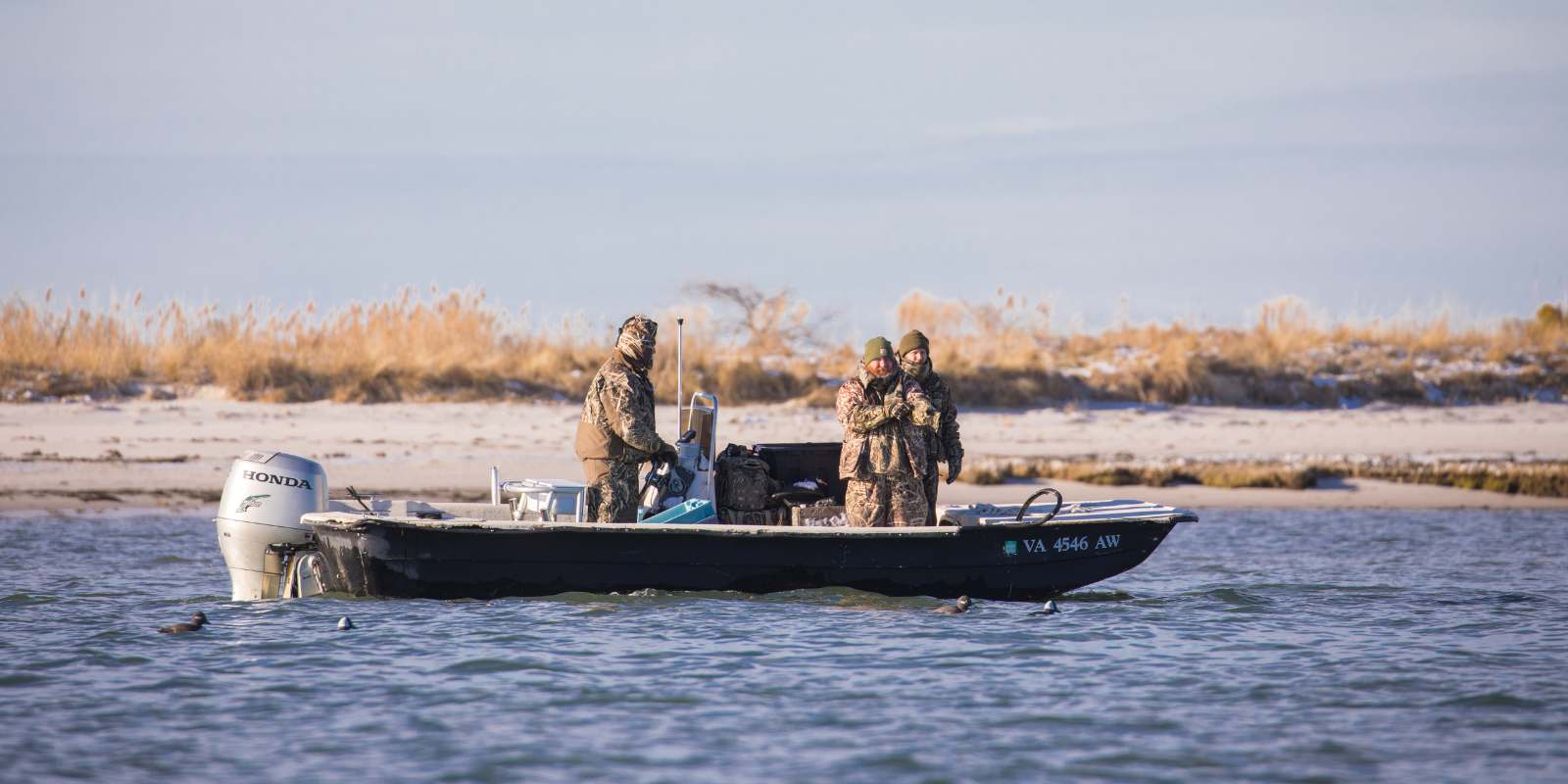By John Page Williams
Photos by Meghan Marchetti/DWR
Preparing modern outboard rigs for winter storage is important to making sure they’re healthy and ready to go in spring. However, for those of us who aren’t ready to put ours away yet—whether for fishing, hunting, or birding—there are important tasks to perform to keep ‘em running right in cold weather. Our winter seasons—and potentially our lives—hinge on having our boats and motors remain reliable and safe. The suggestions in this column come from Reed Griggs, a Gwynn’s Island-based technical service manager for Suzuki Marine USA, along with a couple of general reminders.
Look for a cold-weather checklist and other advice in your owner’s manual. Remember that it’ll be available online and that there may be manufacturer’s videos as well. Begin with your engine’s fluids: lubricating oils, fuel, and cooling water. Start with fresh crankcase oil and lower unit lube to make sure there’s no water or other contaminant there. Consider using a (manufacturer-recommended) lower viscosity winter oil (e.g., 10W-30 instead of 25W-50).
Next, pay attention to the gasoline in your tank. Make sure you have enough for the day’s trip, with a healthy margin in reserve. Modern fuel degrades quickly, especially if it contains ethanol and sits in an above-deck tank. Top the tank off, the higher octane the better. Buy non-ethanol 91 or 93 if you can. If you must buy E10 (10% ethanol pump gas), add a good quality stabilizer. Also, add an additive that targets carbon deposits and cleans fuel injectors. If your engine is small and has a carburetor instead of injectors, this fuel advice is even more important, especially for quick starts on cold mornings and for heading back to the dock at day’s end. If your main fuel filter has a sight bowl, check for water and drain if there’s any. Make sure the hose is intact and firmly plugged in to the tank, filter housing, and engine.
If you have to idle your engine a lot in cold water, such as for winter trolling, consider installing a thermostat that opens at higher temperature. Suzuki engines, for example, come standard with 500 C thermostats (1220 F), but a 710 C (159.80 F) model is available for boaters who operate a lot at low speed at any season, say for trolling or working crab pots. The higher operating temperature at low speed helps fight carbon buildup and oil dilution. At upper RPMs, heat builds enough to bypass the thermostat during any season, allowing greater water flow to keep the engine within its designed operating temperature range.
With fluids sorted, go back to the checklist. Always check everything before launching, just to ensure reliability in freezing weather. Check the battery and charge, if necessary, the day before a trip. Look over the control cables to make sure nothing is worn or kinked. Check steering cable(s), any hydraulic systems, and the crankcase oil level. Put the engine on a hose and start in the driveway. Look over the boat and trailer ahead of time to make sure tires are up to pressure, lights (and brakes) are working, and tie-down straps are tight.

The last thing you want on a cold day on the water is an engine with problems.
On the morning of the trip, run down the pre-launch checklist and make sure you have all of the clothes, food, and drink you’ll need. Tell someone where you are going and when you expect to return. A good motto is “Prepare for the worst and hope for the best.”
Then go have a great late-fall/winter day on Virginia’s waterways!
Last Note: At day’s end, don’t forget to Clean/Drain/Dry to prevent the spread of invasive aquatic animals and plants, especially if you’ve been in an impoundment versus a river. Clean any vegetation from the boat and trailer; drain the bilge; and dry out livewells. Tilt the engine down so the powerhead, lower unit, and gearcase drain. Then put it back wherever you do for trailering. Make sure you tilt it back down when you get home to prevent freeze in the water pump and propeller hub.
John Page Williams is a noted writer, angler, educator, naturalist, and conservationist. In more than 40 years at the Chesapeake Bay Foundation, Virginia native John Page championed the Bay’s causes and educated countless people about its history and biology.

